On September 30th, Penny Arcade ran a comic, ‘Sanderfuge’. It poked fun at the obsessive Brandon Sanderson fans who go on and on about the magic systems and worlds he creates in his fiction. I think it would be easy to replace Brandon Sanderson’s name with almost any other fantasy or science fiction writer and have the joke work just as well. SFF fans tend to be obsessive. I don’t think this is anything to be ashamed of – I think it is great that they are passionate about what they love. However, I will admit, that sometimes it can get a little bit intense for the ‘non-believers’.
While I’ve been a fan of SFF in film and television all my life, I have only recently begun to explore these areas in written fiction (I refused to even pick up Harry Potter for a long time, and had to be convinced by another fan – my mother). For years I’ve had friends bang on and on about this and that author and the amazing fantasy worlds they created. I laughed smugly and read my Vintage and Penguin Classics with a cup of tea and a high-backed chair. Luckily (for those friends who bothered to stand by such an arrogant, closed-minded fool), I’ve been open to trying new things recently.
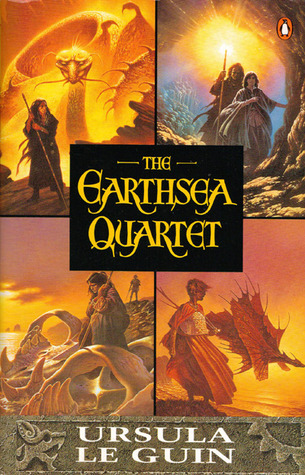 My first dip into fantasy came with Urusla Le Guin’s Earthsea books. I loved them. I also loved The Left Hand of Darkness. Fairly high-concept without feeling high-concept. Her language is isn’t too frilly or overly labored, it is just easy to read and enjoyable. She gets to the point and I like that. I tried a number of different fantasy titles before coming across The Way of Kings, by Brandon Sanderson, on sale for £1.99. Well, that’s quite a bargain, I thought, and bought it.
My first dip into fantasy came with Urusla Le Guin’s Earthsea books. I loved them. I also loved The Left Hand of Darkness. Fairly high-concept without feeling high-concept. Her language is isn’t too frilly or overly labored, it is just easy to read and enjoyable. She gets to the point and I like that. I tried a number of different fantasy titles before coming across The Way of Kings, by Brandon Sanderson, on sale for £1.99. Well, that’s quite a bargain, I thought, and bought it.
I have never been someone who reads quickly – I don’t know how to speed read, nor do I really see any point in it. If an author put in an ellipses, they clearly want the reader to pause. So I’ll pause, dammit. As a result, I tend to steer clear of thick novels. I just get fed up knowing that I’ll have to devote at least a month to reading the same book. So this is why having a Kindle has opened up a new world of reading for me – I can’t see how bloody long the things are! A percentage means nothing if you don’t know the full size. Sure, the percentage read goes up a little slower, but that seems more like a challenge than a thick bock quietly mocking me from my bedside table (You’ll never finish me mwa ha ha!).
The printed edition of The Way of Kings totals 1105 pages (and is therefore sold in two parts). I had no idea that was the case when I started reading and I’m very thankful that I wasn’t put off it. I loved it. I admit that Sanderson isn’t the best writer ever, and there were far more typos and grammatical annoyances scattered throughout than there should have been. But you know what? It was a good story. A good yarn, you might say. It is true, the typos might be part of a publisher’s poor ebook program.
If I were to attack the novel from a literary critique perspective, I could easily find a lot wrong with it. It meanders, there’s too much back and forth, the pacing is strange, the ending is far too much like the middle film of a trilogy (aka no ending at all), and some of the characterization relies too heavily on stereotypes. But I don’t care, I loved it. When I finally finished it (five weeks later… yes, I really am a slow reader), I wanted more. Words of Radiance doesn’t come out until next year (although it seems fortuitous that its release coincides with a three week long holiday in Australia… yay for something good to read on that awful flight!) and I can’t wait. In the meantime, I’ve devoured his Mistborn trilogy and purchased his Hugo award winning short story/novella, The Emperor’s Soul.
The best fantasy and science fiction worlds (in fiction)
It might surprise you that one world in particularly is missing from my list of best fantasy worlds… J.R.R. Tolkein’s Middle-earth (please don’t break out the knives or hate mail). I am a Lord of the Rings and The Hobbit hater from way back (LOTRTHH for short?!). I was forced to read The Hobbit in the seventh grade when I was living in Texas. It was evil. I absolutely hated it. Sure, this may well have been down to the dodgy US education system and the appalling way we had to write short answer comprehension questions on every chapter (so boring!). Several years later I thought I should give the world another go, and attempted to read The Fellowship of the Ring. I failed to even make it halfway before shutting the thing in disgust… for good. I’m sorry, but that world just isn’t for me.
- The Hitchiker’s Guide to the Galaxy by Douglas Adams
- The Handmaid’s Tale by Margaret Atwood
- Do Androids Dream of Sleep? by Philip K. Dick
- The Hero and the Crown by Robin McKinley
- Northern Lights/The Golden Compass by Philip Pullman
- The Chronicles of Prydain by Lloyd Alexander
- Brave New World by Aldous Huxley
- 1984 by George Orwell
- A Wizard of Earthsea by Ursula Le Guin
- The City & The City by China Miéville
I feel like this list could go on and on and on. There are loads of these invented worlds that excite me. What are your favourites?
World building
For fantasy or science fiction writers, creating a new world can be a daunting task. Readers aren’t very forgiving when it comes to inconsistency. They like originality and completeness. So how on earth do you start writing your own SFF world?! Good question. If you head over to the Science Fiction and Fantasy Writers of America website, they have a list of questions to help writers get started thinking about their invented worlds. You have to think about everything… physics, landscapes, magic, societal structure, what people wear, how they are educated, etc. While some people might say SFF writing is easier in that they can make up their own rules, those same people probably aren’t looking at just how many rules these writers need to create for themselves. For instance, writing historical fiction might limit what you can and can’t do, but the boundaries are well defined before the writer begins.
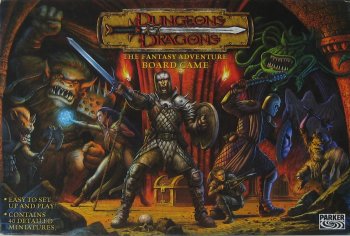 For a long time, Dungeons and Dragons players have been inventing their own worlds and characters to explore them. The internet is full of helpful tools to help players develop worlds, place names, landscapes, events, monsters, etc. For instance, this site contains a fantasy and sci-fi world and name generators. While I don’t recommend these kinds of tools as a way to build your entire world, they are a great place to start and really help get the creative juices flowing. Another great way to get inspiration is to lose yourself on tvtropes.org. Trust me, it is easy to do. I like to set myself writing exercises of mashing several tropes together (when they don’t usually go together).
For a long time, Dungeons and Dragons players have been inventing their own worlds and characters to explore them. The internet is full of helpful tools to help players develop worlds, place names, landscapes, events, monsters, etc. For instance, this site contains a fantasy and sci-fi world and name generators. While I don’t recommend these kinds of tools as a way to build your entire world, they are a great place to start and really help get the creative juices flowing. Another great way to get inspiration is to lose yourself on tvtropes.org. Trust me, it is easy to do. I like to set myself writing exercises of mashing several tropes together (when they don’t usually go together).
This is the age of the Internet, so never fear, there’s plenty of advice out there. Including words of wisdom from Fantasy stalwarts like Raymond E. Feist. But most importantly, remember Neil Gaiman’s advice:
 Pop Verse Pop Culture Universe
Pop Verse Pop Culture Universe
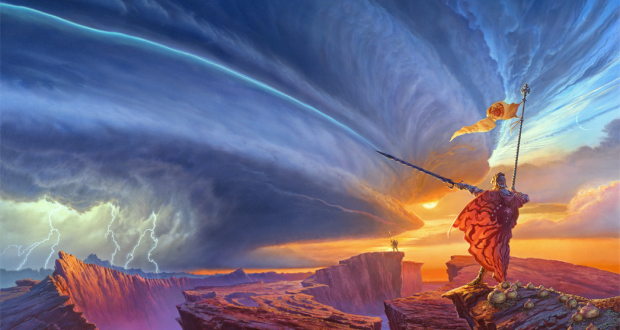


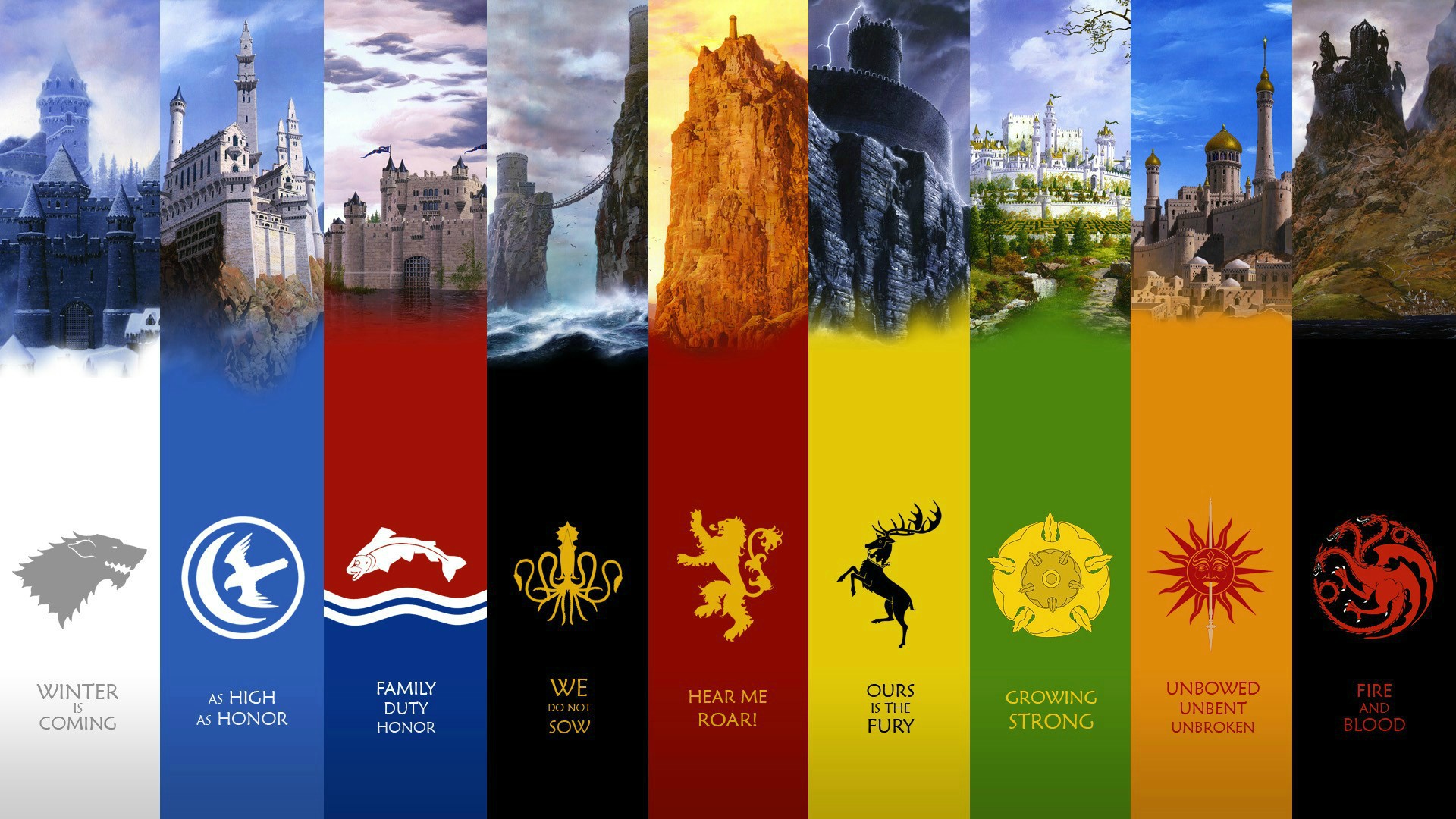
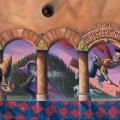
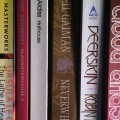
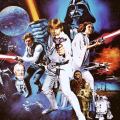

One comment
Pingback: Why life is too short to read fantasy novels | Pop Verse